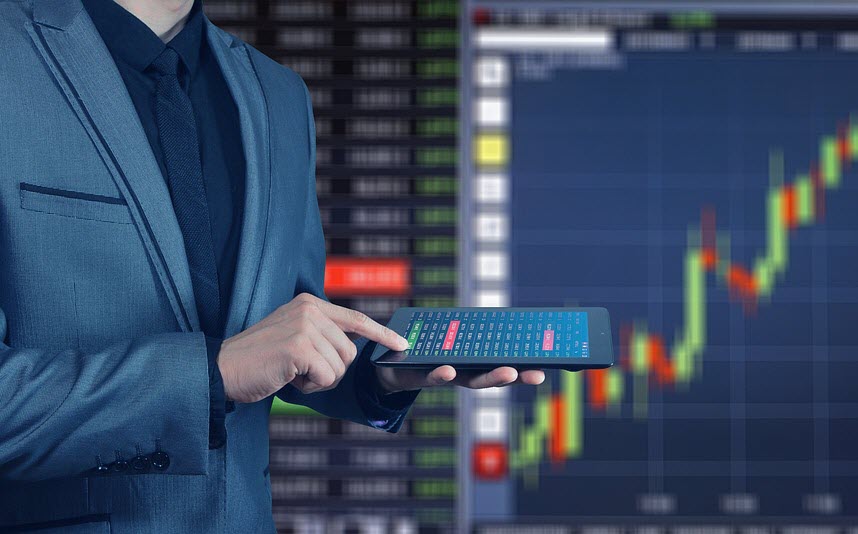Day trading involves the buying and selling of financial instruments within a single trading day, with the aim of profiting from short-term market fluctuations. Successful day traders can make significant returns on their investments, but this career path also carries considerable risks. In this article, we will explore the steps to becoming a day trader, as well as the skills, tools, and strategies required to succeed in this fast-paced world of finance.
Understand the Basics of Day Trading
What is Day Trading?
Day trading is a form of short-term trading that involves entering and exiting positions within the same trading day. Day traders capitalize on small price movements in financial instruments, such as stocks, currencies, or commodities, to generate profits. Due to the high risk and fast-paced nature of day trading, it is not suitable for everyone and requires a strong foundation in market knowledge and technical analysis.
Day Trading vs. Long-Term Investing
Day trading differs significantly from long-term investing. While long-term investors focus on the fundamental value of assets and hold positions for months or years, day traders rely on short-term market fluctuations and technical analysis to make trading decisions. Day trading requires a higher degree of skill, discipline, and risk tolerance compared to long-term investing.
Acquire the Necessary Education and Skills
Financial Knowledge
Successful day traders must deeply understand financial markets, instruments, and trading strategies. This knowledge can be acquired through formal education, such as a degree in finance or economics, or through self-study and online courses. Familiarize yourself with market terminology, trading platforms, and various financial instruments to build a solid foundation for your day trading career.
Technical Analysis
Technical analysis is the study of historical price data to predict future price movements. Day traders rely heavily on technical analysis to make trading decisions, as they focus on short-term price patterns and trends. Learn to read and interpret technical indicators, such as moving averages, relative strength index (RSI), and candlestick patterns, to identify potential trading opportunities.
Risk Management
Effective risk management is crucial for day trading success. Develop a solid understanding of risk management techniques, such as setting stop-loss orders, calculating position size, and diversifying your portfolio, to protect your capital and minimize losses.
Develop a Trading Strategy
Define Your Trading Style
There are various day trading styles, such as scalping, momentum trading, and swing trading. Identify the style that best suits your personality, risk tolerance, and time commitment. Each trading style has unique characteristics and requires a different approach, so choosing one that aligns with your goals and preferences is essential.
Create a Trading Plan
A trading plan is a comprehensive document that outlines your trading strategy, risk management guidelines, and performance evaluation methods. Developing a well-defined trading plan can help you maintain discipline, stay focused, and avoid emotional decision-making during trading sessions.
Test Your Strategy
Before risking real capital, test your trading strategy using a demo account or paper trading. This practice allows you to gain experience, fine-tune your strategy, and develop confidence in your trading abilities without risking actual money. Once you have consistently achieved positive results in a simulated environment, you can transition to live trading.
Set Up Your Trading Tools and Workspace
Trading Platform
Select a reliable and user-friendly trading platform that offers the necessary tools and features for your chosen trading style. Many day traders use advanced platforms that provide real-time charting, technical analysis tools, and lightning-fast trade execution.
Hardware and Internet Connection
Day trading requires a fast and stable internet connection, as well as a reliable computer setup. Invest in a high-quality computer with multiple monitors, a powerful processor, and sufficient memory to run your trading platform and analyze market data efficiently. A backup internet connection and power supply can also help ensure uninterrupted trading during critical market moments.
Trading Workspace
Create a comfortable and organized trading workspace that promotes focus and productivity. A dedicated workspace, free from distractions, can help you maintain discipline and concentration during trading sessions. Ensure that your trading desk is ergonomically designed and equipped with all the necessary tools and resources.
Choose a Broker and Open a Trading Account
Research and Compare Brokers
Selecting the right broker is crucial for your day trading success. Research and compare various brokers based on factors such as trading platform, fees, commissions, customer support, and regulatory compliance. Look for brokers that cater specifically to day traders, as they may offer lower fees, faster trade execution, and advanced trading tools.
Open a Trading Account
Once you have chosen a broker, open a trading account and deposit the required initial capital. It is recommended to start with a smaller account and gradually increase your capital as you gain experience and confidence in your trading abilities.
Continuously Improve and Evaluate Your Performance
Keep a Trading Journal
Maintain a detailed trading journal to record and analyze your trades. A trading journal can help you identify patterns in your decision-making, recognize areas for improvement, and track your progress over time.
Monitor Market Conditions
Stay informed about current market conditions, economic news, and other factors that may influence your trading decisions. Regularly review your trading strategy and adjust it as necessary to adapt to changing market conditions.
Seek Continued Education and Networking
Continued education and networking are essential for long-term day trading success. Attend seminars, workshops, and conferences to stay up-to-date with the latest trading strategies, tools, and industry developments. Join trading communities and forums to connect with other traders, share ideas, and learn from their experiences.
This article was last updated on: April 22, 2023

